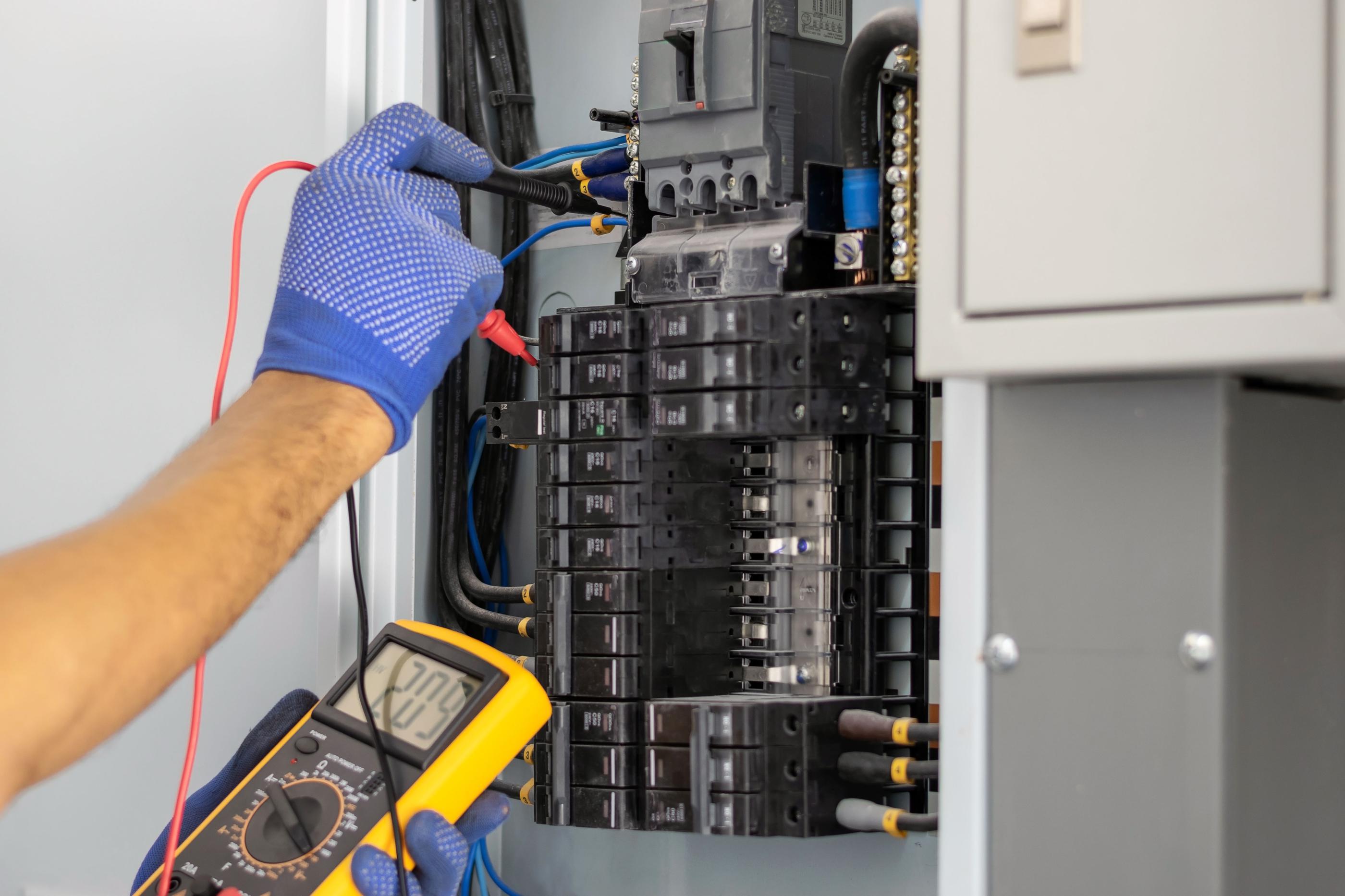Planning a home renovation can be exciting, but it has more rules than expected, especially regarding your electrical work. The city of New Haven, CT, follows strict electrical codes that protect your safety and the value of your home, and ignoring them can lead to expensive mistakes. At Mister Sparky®, serving residents throughout the state of Connecticut, we ensure upgrades that are both beautiful and up to code.
Why Electrical Codes Are Needed for Renovation Plans
If you are planning a home renovation, you might be thinking about layouts, finishes, and furniture. What many homeowners miss, though, is how important electrical codes are to the success of their project. Codes exist to protect you and your property from risks you cannot always see coming. When you start moving walls, adding rooms, or upgrading systems, your home’s electrical setup has to meet current standards, not those in place when your home was first built. In New Haven and throughout Connecticut, updated codes help reduce the chance of fires, electrical shock, and system failures. Even small projects like finishing a basement or remodeling a kitchen often need permits and inspections. If you skip these steps, you could face fines, delays, or worse, have to tear out new work to fix hidden hazards later. Knowing where codes apply makes it easier to build something safer, smarter, and more lasting, providing you with a sense of security in your home.
Permits and Inspections in Connecticut
Throughout Connecticut, electrical work for home renovations almost always requires a permit. Whether you're adding a new outlet, upgrading your electrical panel, or rewiring an entire room, a permit is your ticket into the official system. Here, licensed inspectors check that the work meets state and local codes. These permits are not just paperwork. They create a record that protects you when you sell your home and gives insurance companies proof that your upgrades were done properly. In New Haven, inspectors look for more than just whether your lights turn on. They check grounding systems, wire sizes, load calculations, and protection devices like ground fault and arc-fault circuit interrupters. Getting caught doing unpermitted work can cost you thousands of dollars and delay your renovation by weeks or months. If you refinance or sell later, it can also create trouble with your mortgage lender. A licensed electrician from Mister Sparky® understands the permitting process, making it easier for your project to pass inspection without surprises, giving you peace of mind, and making the process more convenient.
Common Electrical Upgrades That Require Code Compliance
Many popular renovation projects in New Haven homes trigger electrical code requirements. Finishing a basement means adding outlets and lighting that meet spacing rules and moisture protection standards. Remodeling a kitchen demands careful planning around circuits, appliances, and dedicated outlets. Bathroom upgrades need protection in all wet locations, and outdoor additions like patios or decks often require weatherproof outlets and proper grounding. Swapping out an old ceiling fan for a larger model can require checking the ceiling's box rating to avoid future structural problems. In New Haven and throughout Connecticut, homes built before the 1990s often lack the protections modern codes call for. That means your project might involve more updates than expected once you start opening walls. Working with a professional who knows local code inside and out can keep you from getting stuck halfway through your plans with expensive fixes you didn't budget for.
What You Need to Know About Electrical Panel Upgrades
Older homes often have electrical panels that were never designed to handle modern power needs. You might need to upgrade your panel to stay within code if you add major appliances, a home office, or a new entertainment system during your renovation. Panels from decades ago may not be able to handle today’s loads safely, especially once you layer on air conditioners, electric vehicles, or upgraded kitchen equipment. Signs that you might need a new panel include frequent breaker trips, buzzing noises, hot spots around the panel door, or signs of corrosion. Inspectors expect to see panels that meet modern standards for amperage, circuit protection, and grounding. Upgrading your panel during a renovation makes your home safer and gives you room to expand without headaches later. It also increases the value of your home when it comes time to sell.
GFCI and AFCI Protection: What Modern Codes Require
Modern electrical codes across Connecticut call for both GFCI (ground fault circuit interrupter) and AFCI (arc fault circuit interrupter) protection in key areas of the home. GFCI outlets protect you from shock hazards by cutting off power quickly if they sense an imbalance, making them mandatory in kitchens, bathrooms, garages, and outdoor spaces. AFCI breakers help prevent fires by detecting dangerous electrical arcs inside walls, which can happen when wires get pinched or damaged. New construction and major renovations must include AFCI protection in almost every living space, including bedrooms, hallways, and family rooms. A renovation offers the perfect time to upgrade if your home still uses standard outlets and breakers without these safety features. Inspectors will check that you have the right protection devices in the right locations. Updating your protection circuits does not just satisfy the building department. It gives your family a safer place to live without visible signs of all the work that went into it.
Why DIY Electrical Work Creates Bigger Risks in Connecticut
Tackling your electrical work might feel tempting, especially if you are handy and enjoy working on home projects. However, electrical codes in New Haven and throughout Connecticut are detailed and specific for good reasons. Mistakes that seem small at the time, like using the wrong wire size or failing to secure connections properly, can create serious fire hazards behind your walls. Wiring errors also make it harder for inspectors to approve your work, which can delay or derail your renovation plans. If your renovation work is not permitted or up to code, insurance companies might refuse to cover damages, which means you could end up paying out of pocket after a fire or accident. Hiring a licensed professional from Mister Sparky® protects you legally and financially, because you get work that meets the applicable requirements the first time. It also spares you the stress of trying to untangle confusing code updates and changes.
Energy Efficiency Standards for New Renovations
Connecticut pushes for higher energy efficiency standards in residential renovations and basic safety codes. New lighting installations must often meet LED requirements or high-efficiency ratings. Electrical upgrades may include installing smart thermostats, energy-efficient appliances, or chargers. Building inspectors look for compliance with state energy codes as part of the overall inspection process. Making smart energy upgrades during renovation can lower your utility bills and qualify you for local rebates or tax incentives. It can also future-proof your home against rising electricity costs. Adding features like programmable lighting, efficient HVAC controls, and solar-ready circuits shows prospective buyers that your home is ready for the next generation of energy standards. Understanding how energy codes fit into your renovation project will help you stay compliant and stretch your investment further.
Check and Update Your Electrical Codes Now
Electrical codes might seem complicated, but they keep you and your home safe, especially during major renovations. If you are getting ready to renovate and want to be sure everything is done right, Mister Sparky® is prepared to help you build something better. We also provide emergency repairs, electrical panel upgrades, wiring and rewiring, lighting installations, surge protection, and EV charger installations. Call us today and find out why we are known as America's On-Time Electrician®!















